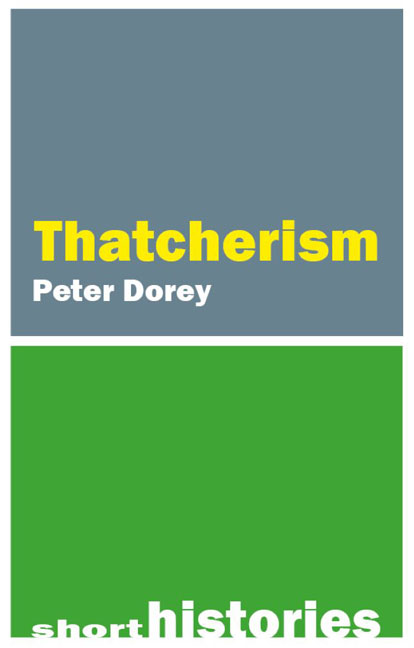Book contents
- Frontmatter
- Contents
- Preface
- 1 Why Margaret Thatcher Became Conservative Party Leader and Prime Minister
- 2 The Development of Thatcherism: Intellectual Origins and Ideological Framework
- 3 The Key Policies
- 4 Thatcher's Management and Domination of the Parliamentary Conservative Party
- 5 The Thatcherization of the Conservative Party Since 1990
- 6 The Contradictions and Consequences of Thatcherism
- Concluding Comments
- Chronology
- References
- Index
Concluding Comments
Published online by Cambridge University Press: 23 January 2024
- Frontmatter
- Contents
- Preface
- 1 Why Margaret Thatcher Became Conservative Party Leader and Prime Minister
- 2 The Development of Thatcherism: Intellectual Origins and Ideological Framework
- 3 The Key Policies
- 4 Thatcher's Management and Domination of the Parliamentary Conservative Party
- 5 The Thatcherization of the Conservative Party Since 1990
- 6 The Contradictions and Consequences of Thatcherism
- Concluding Comments
- Chronology
- References
- Index
Summary
Thatcherism has proved to be a controversial, divisive, often contradictory, yet enduring, feature of British politics since the late 1980s, with its legacy and consequences still highly visible today; indeed, perhaps more evident than ever before. To her adherents and admirers, the ideas and policies that constituted Thatcherism, and which were (and still are) faithfully promoted by many of Britain's most widely read daily newspapers, delivered national salvation for a Britain that had experienced economic decline, moral decay and social disorder since the 1960s. Thatcherites would point proudly to achievements, such as lower taxation; wider share ownership; increased homeownership; greatly enhanced individual liberty; much more consumer choice and sovereignty; reduced inflation and the restoration of sound money; curbs on welfare dependency; fewer strikes by trade unions; the ability of individuals to become financially better-off via hard work and entrepreneurship; the breaking-up of inefficient and expensive monopolies in industry, the public sector and local government; a cutting of bureaucracy and red tape; a general “rolling back” of the state to set people free, and allow them to decide for themselves how and where to spend their hard-earned money.
Against this positive interpretation, the critics of Thatcherism would argue that: inequality and poverty have increased exponentially since the 1980s, such that Britain is now characterized by an enormous chasm between the rich and the poor, with many working people reliant on top-up welfare benefits and/or food banks due to poverty wages; for many ordinary people on average incomes, overall taxation has not been reduced, because their income tax cuts were offset (and partly funded) by increases in national insurance and VAT; the deliberate refusal to build social housing has bequeathed today's chronic lack of affordable housing and high private sector rents; labour market flexibility has resulted in worsening terms and conditions of employment, negligible workers’ rights and employment protection, and many workers suffering from debilitating stress or other mental health problems due to increased pressure and performance monitoring in the work place, as well as growing job insecurity and precarity; what is sometimes termed the “gig economy” and a race to the bottom or levelling-down in terms of deteriorating employment conditions and declining pay, even for sections of the middle class.
- Type
- Chapter
- Information
- Thatcherism , pp. 159 - 166Publisher: Agenda PublishingPrint publication year: 2023

